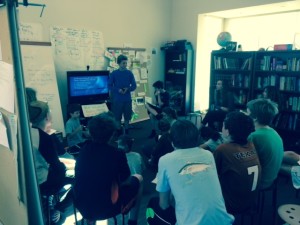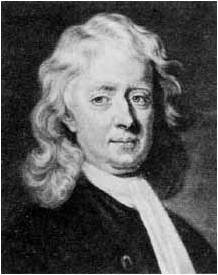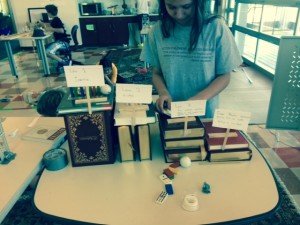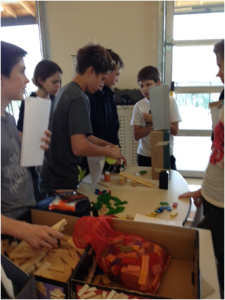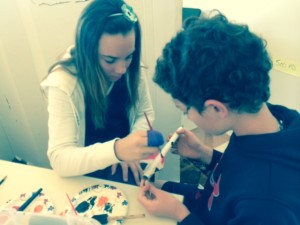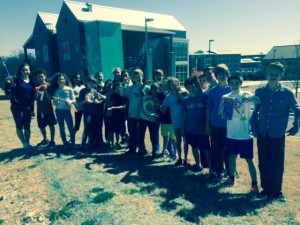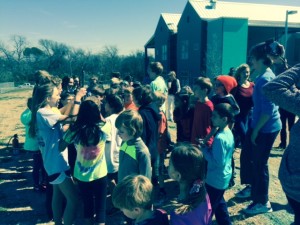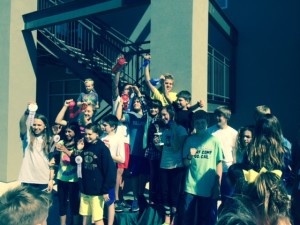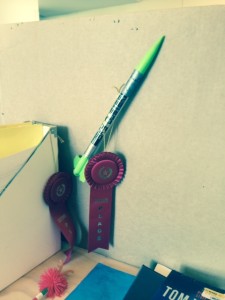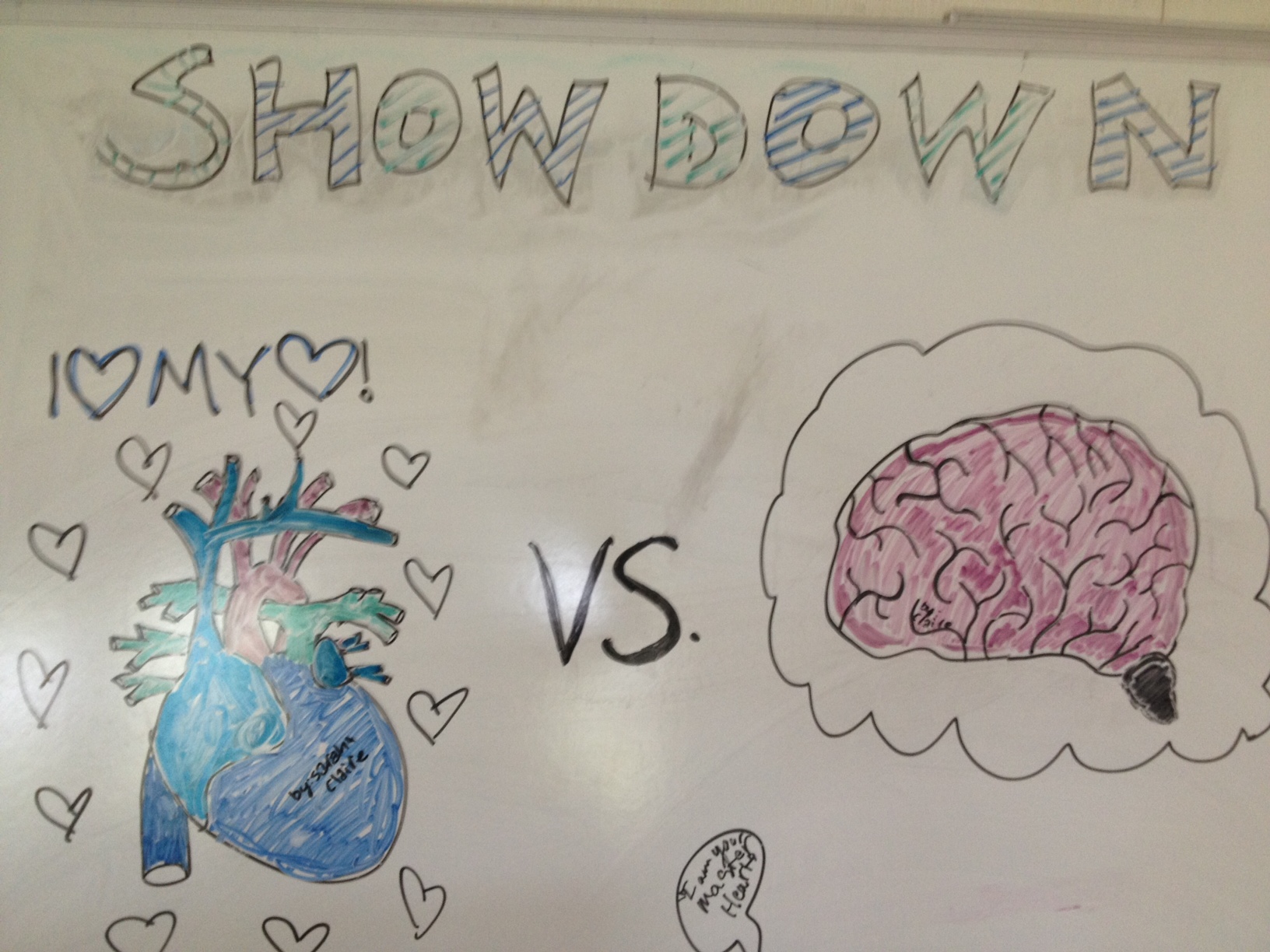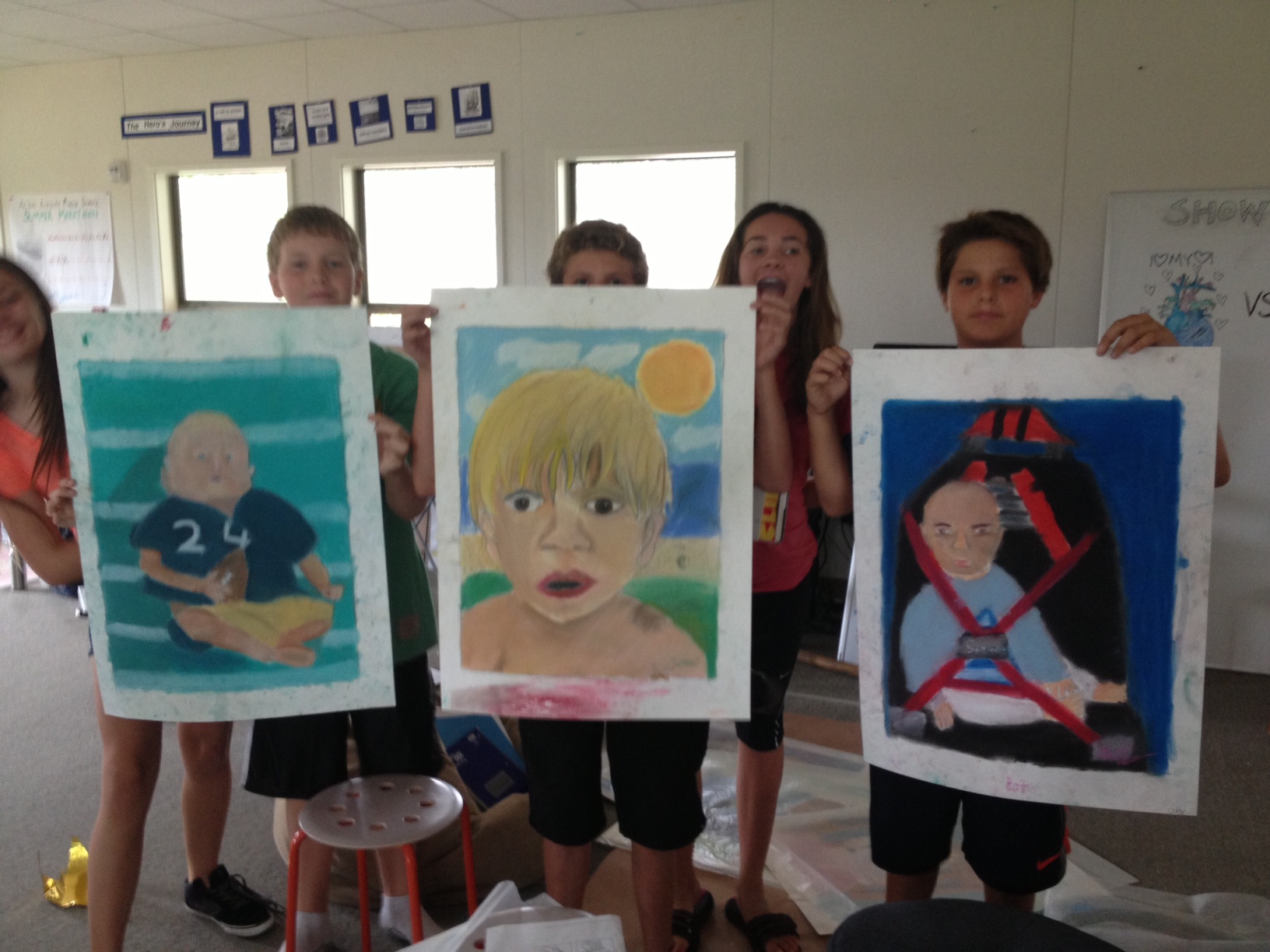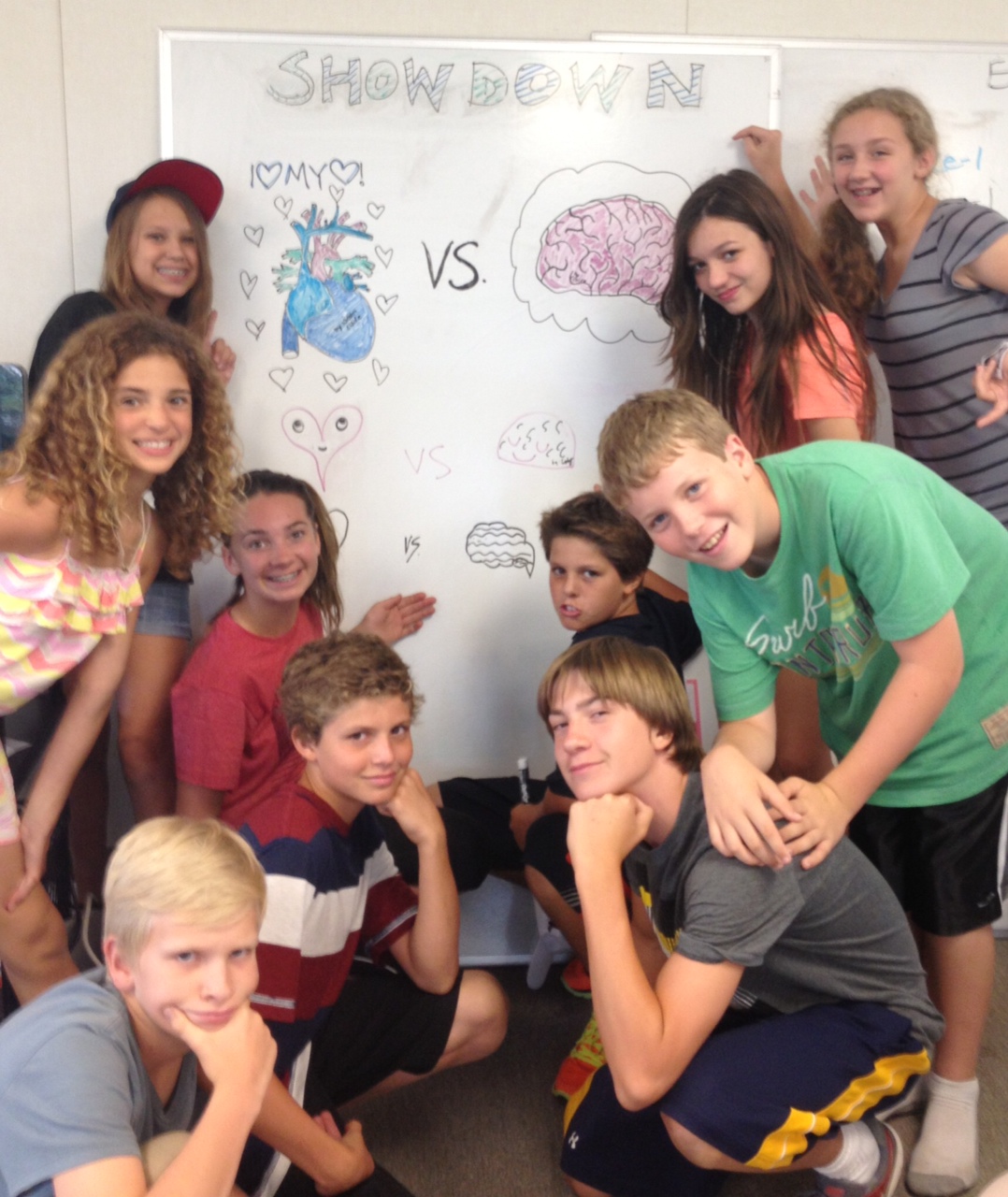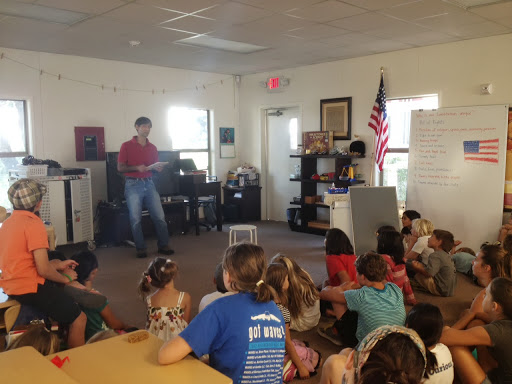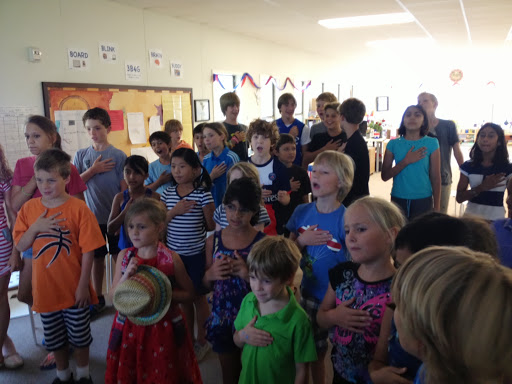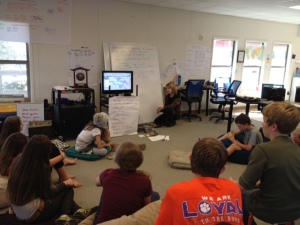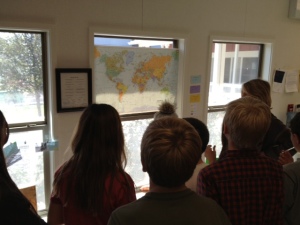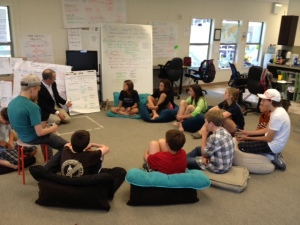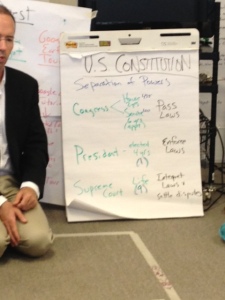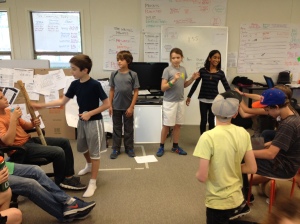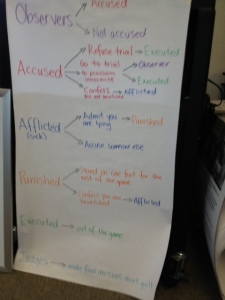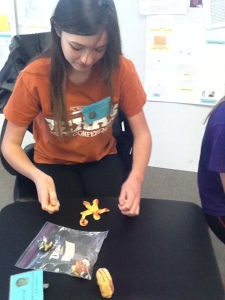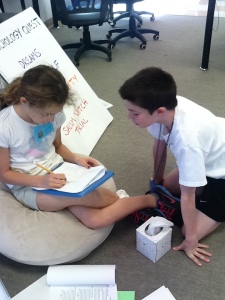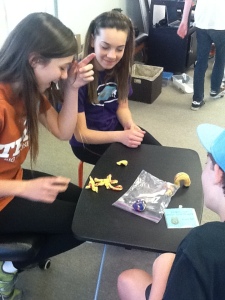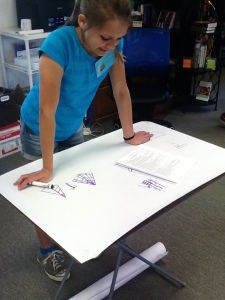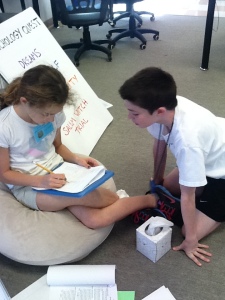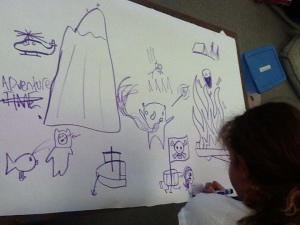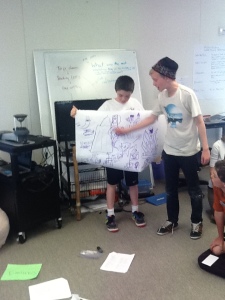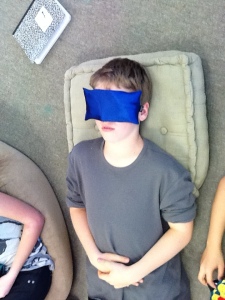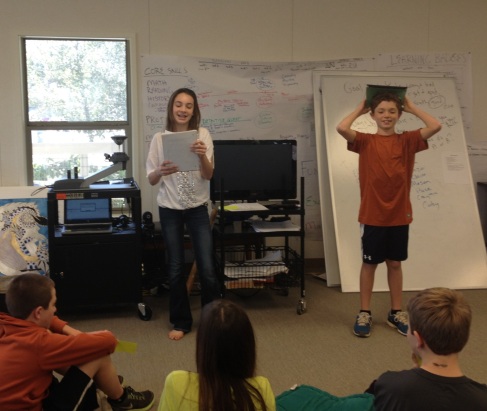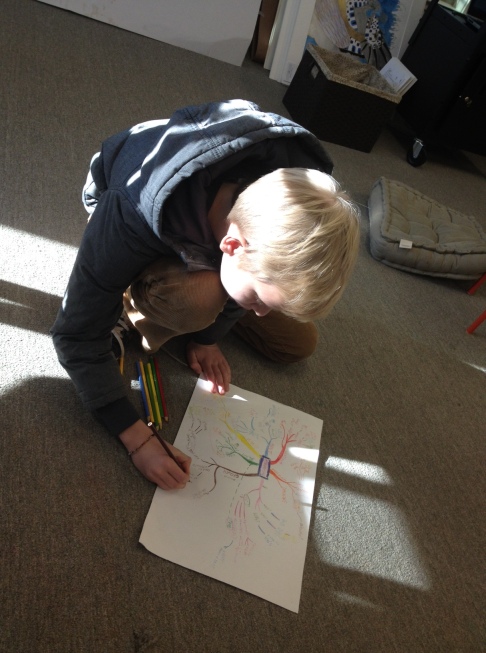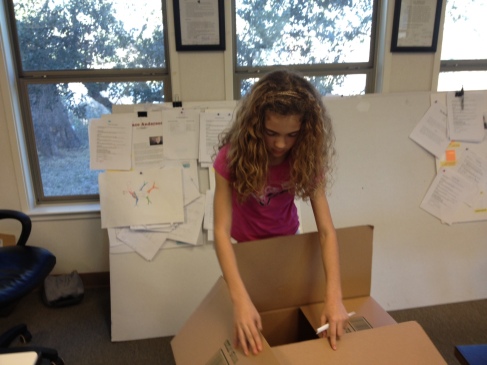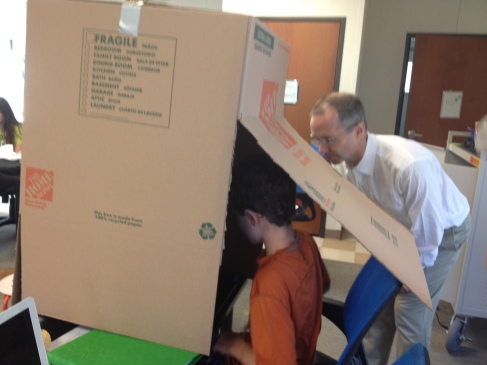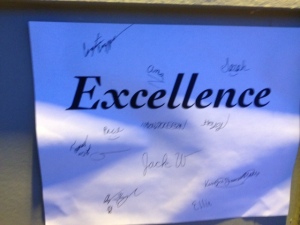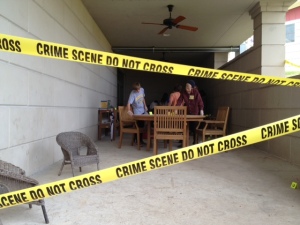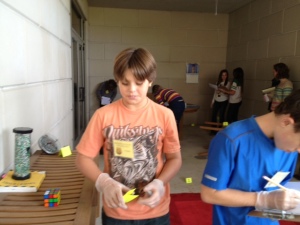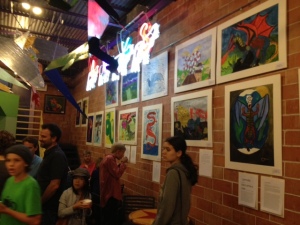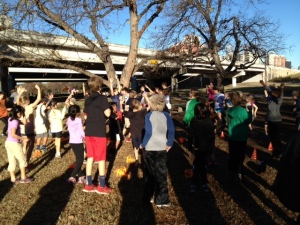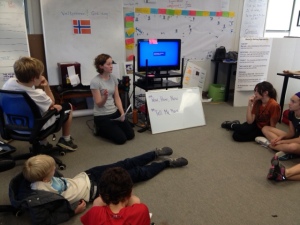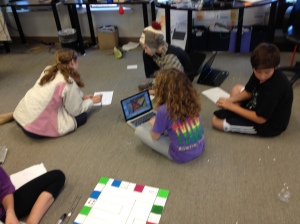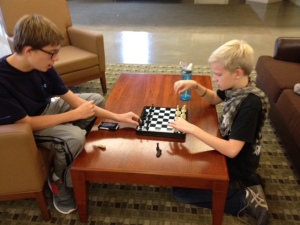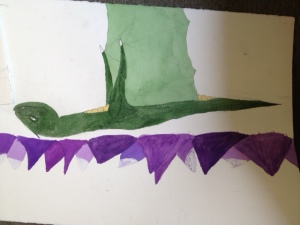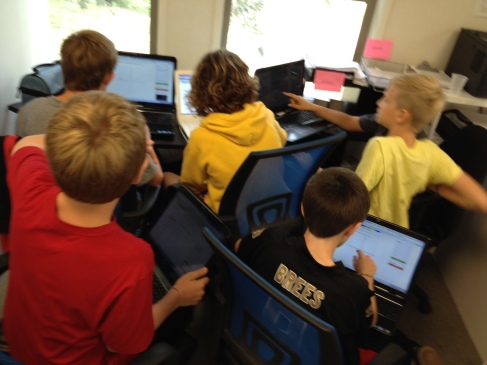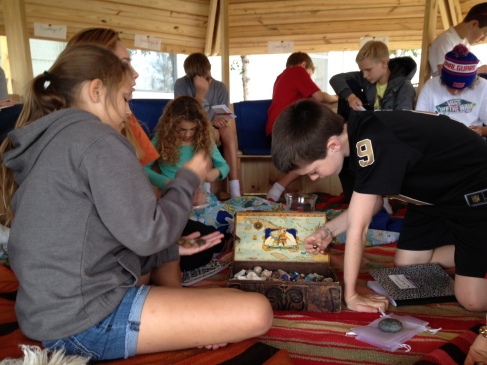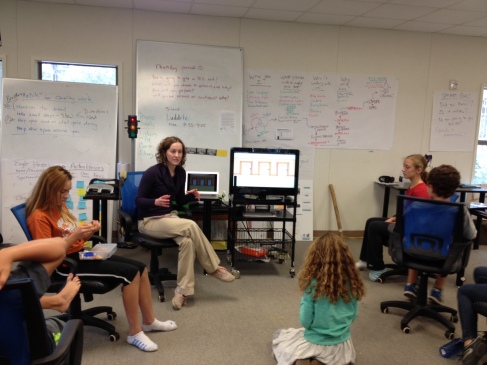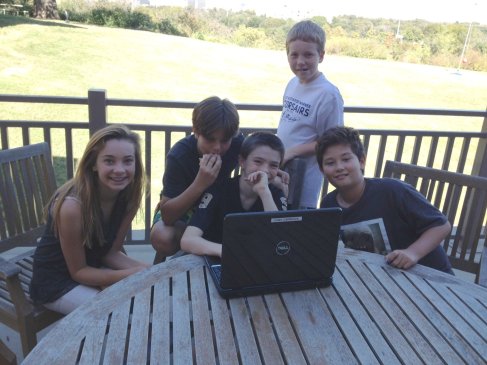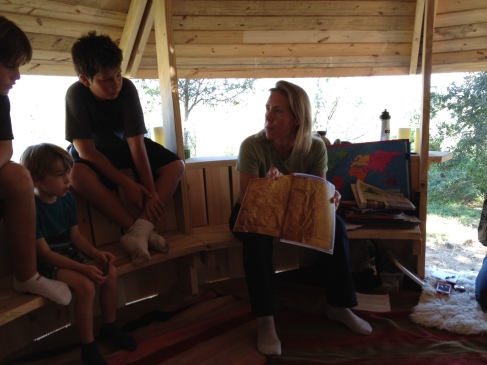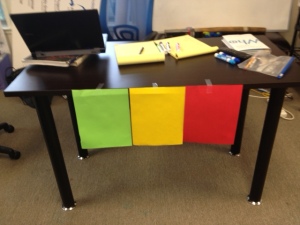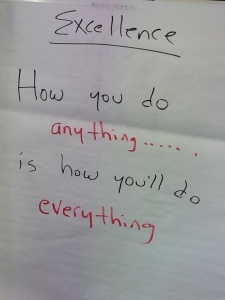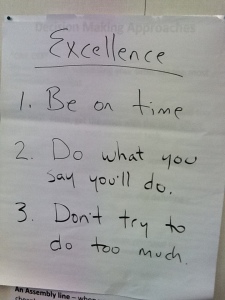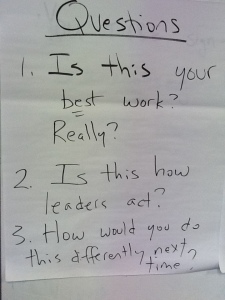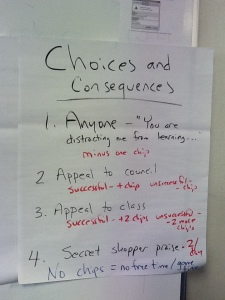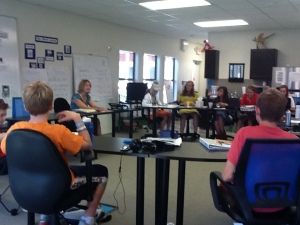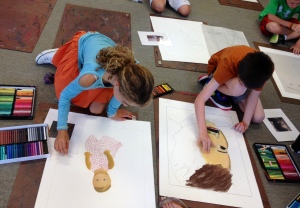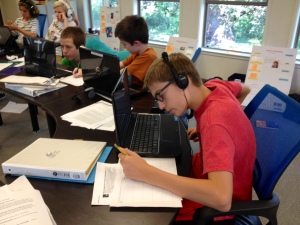Today we tried a new experiment in Civilization, our integrative study of history, economics, philosophy and geography.
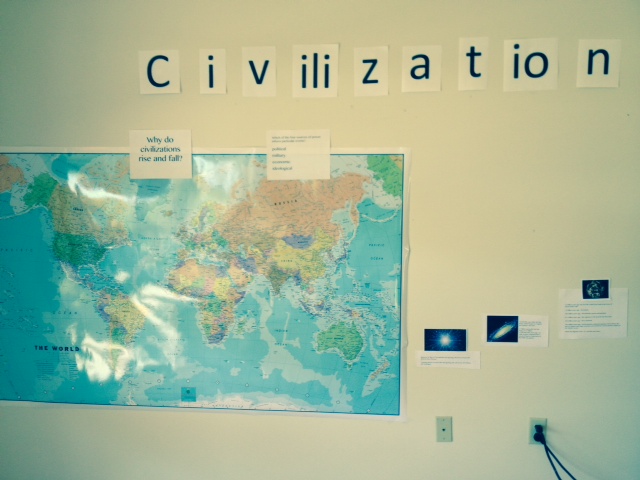
Eagles watched a DVD lecture from The Skeptics Guide to American History, a college level Learning Company course taught by University of Vermont award winning professor Mark Stoler. Today we explored The Great Awakening; over the next nine months we’ll tackle 35 different turning points between 1850 and the present, sampling from several college level course.
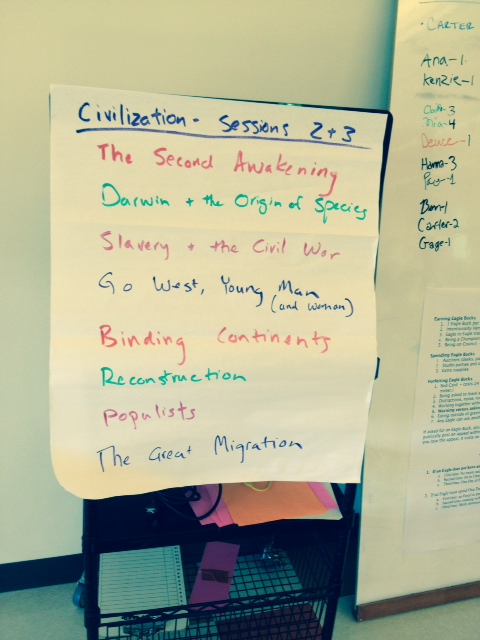
Prior to the lecture, Eagles were asked to explore the Great Awakening, Predestination and the Progressive movement on their own. Contributing a Socratic Question about the period or one of these topics was the required entry ticket for the session.
Just prior to the start, Ms Abigail gave the first drawing lesson from Drawing on the Right Side of the Brain, as Eagles began working on a “before I learned to draw” sketch of a familiar person or object.
Then this launch:
Imagine this. Years from now, you begin to see stories about roving religious leaders, moving from town to town, having large, emotional meetings in tents. They are questioning everything about society; some are saying the old world is about to end. Everyone seems swept up in emotion. Everything that once seemed settled now seems open to change.
As a leader in the world, you have to decide whether this is an opportunity or a danger? Which is it?
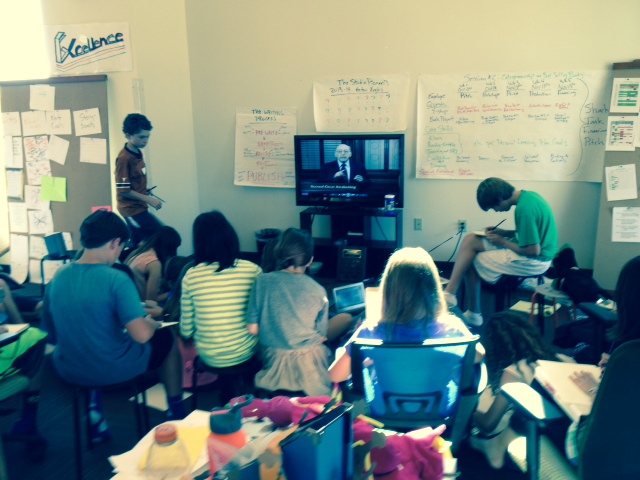
For thirty minutes Eagles watched and listened as they worked on their sketches. Then we followed with an intense Socratic discussion in Pods of 8 Eagles each, featuring questions like:
- What was the most important positive or negative consequence of the Second Great Awakening: public schools; prison reform; temperance movement that banned alcohol or the women’s movement?
- Do you believe there’s more truth in predestination – that you have little control over life – or Progressivism – that mankind can be perfected? Are these similar or different to the idea of the Hero’s Journey?
- Should churches be involved in politics? Should religious people be involved in politics?
- When Jefferson and the Founders wrote that there should be no established religion in America, did they mean no government church or that religious matters had no place in politics?
- Are there real differences between men and women real or imagined?
- If drugs are illegal, should alcohol be illegal? Why isn’t it?
- In total, was the Second Great Awakening positive or negative?
- Do you believe strongly enough in anything to be willing to go to jail for it?
Finally, each Eagle chose one person, trend or event to illustrate, and placed these on the master civilization timeline that charts history from the Big Bang to the present.
How did the Eagles rate the experiment? On average, a 9.8 out of 10. They loved being able to watch, listen and work on art. They found the lecture fascinating, even though they had to look up some of the more advanced terms.
Did they learn anything? Here are a few of the Socratic questions they posed:
- Why did the Second Great Awakening happen?
- If mankind could be perfected, would that be a good thing?
- Who was the most powerful person in the Second Great Awakening?
- What is the biggest way the Second Great awakening has impacted our lives?
College level work. Deep questions. A sense of perspective. Debating why some civilizations rise and others fall, and the impact of military, economic, political and ideological forces. Learning to draw like a master while you study the turning points of human history.
It simply doesn’t get much better than that, as Eagles prepare to take on the world.

